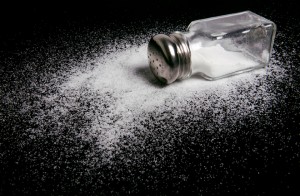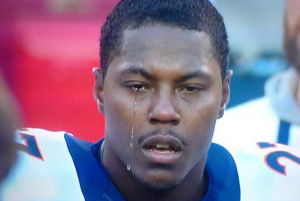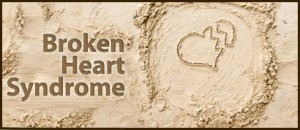This past weekend my parents came to visit me and with them they brought fresh apples (yum!). As they were leaving my room to go home my dad said to me, “remember to eat your apples, because one a day keeps the doctor away.” This led me to question, does fruit help keep the doctor away? Well according to a large, seven-year study, the answer could be yes.
 Dr. Huaidong Du from Oxford presented study that involved almost half a million people concluded that daily fruit consumption can cut the risk of developing cardiovascular disease (CVD) by 40 percent at the European Society of Cardiology.
Dr. Huaidong Du from Oxford presented study that involved almost half a million people concluded that daily fruit consumption can cut the risk of developing cardiovascular disease (CVD) by 40 percent at the European Society of Cardiology.
The participants from Chine Kadoorie Biobank consisted of 451,681 participants with no history of CVD and were not taking any medication for hypertension. Then participants fruit intake was recorder and categorized under never, monthly, 1-3 days per week, 4-6 days per week, or daily. They found that 18 percent of participants consumed fruit daily and 6.3 never consumed fruit. The average daily portion was 1.5.
They found that overall the risk of CVD was reduced by 25 to 40 percent for participants who ate fruit daily. They found that eating fruit also lowers blood pressure. With further studying, they found that wily fruit consumption was associated with a lower systolic blood pressure and lower diastolic blood pressure in comparison to people who did not eat fruit.
In a separate analysis, overall mortality was looked at in comparison to fruit consumption in 61,000 patients who had been excluded from the study due to CVD and hypertension. In this group, daily consumption reduced overall risk of death by 32 percent compared to people who did not eat fruit.
 It can be concluded that the results were not due to reverse causation because having CVD would not most likely cause you to eat more fruit. The study is also very specific to China because all the patients were taken from there. This could mean that daily fruit consumption is better for everyone in the world. Lastly, there could be a confounding variable. Because the study focused on all fruits, it could be one specific fruit that is helping with cardiovascular disease. For example, it may just be apples that help or oranges. But because the study was so large and just daily fruit consumption in general was recorded, it is hard to be specific as to what is lowering the risk of disease and lowering blood pressure.
It can be concluded that the results were not due to reverse causation because having CVD would not most likely cause you to eat more fruit. The study is also very specific to China because all the patients were taken from there. This could mean that daily fruit consumption is better for everyone in the world. Lastly, there could be a confounding variable. Because the study focused on all fruits, it could be one specific fruit that is helping with cardiovascular disease. For example, it may just be apples that help or oranges. But because the study was so large and just daily fruit consumption in general was recorded, it is hard to be specific as to what is lowering the risk of disease and lowering blood pressure.
However, for now I will continue eating my apples just for the simple fact that they are good!
Sources:
http://www.nydailynews.com/life-style/health/study-finds-eating-fruit-reduces-heart-disease-article-1.1926024


 , and the fourth was leaving the sidewalk and looking directly at the squirrel. Every time Bateman approached the squirrel he kept a slow walking pace and to measure how close he got he would drop colored pen lids. When he was done, he could measure the path the caps marked. He also had a timer running to see how long it would take before the squirrel ran.
, and the fourth was leaving the sidewalk and looking directly at the squirrel. Every time Bateman approached the squirrel he kept a slow walking pace and to measure how close he got he would drop colored pen lids. When he was done, he could measure the path the caps marked. He also had a timer running to see how long it would take before the squirrel ran. ere conclusive and appear to be pretty accurate to what I witness on a daily basis, there are multiple problems with his tests. The first is he only tested in on squirrels in Manhattan and only on the gray squirrel. Another problem is the issue of a confounding variable. The squirrels could have been running away because of Bateman dropping the caps and creating an unusual noise. Which also leads to the issue of the caps bouncing around when dropped which could create a problem with the measurements. Overall, Bateman’s tests were conducted poorly, despite his positive results.
ere conclusive and appear to be pretty accurate to what I witness on a daily basis, there are multiple problems with his tests. The first is he only tested in on squirrels in Manhattan and only on the gray squirrel. Another problem is the issue of a confounding variable. The squirrels could have been running away because of Bateman dropping the caps and creating an unusual noise. Which also leads to the issue of the caps bouncing around when dropped which could create a problem with the measurements. Overall, Bateman’s tests were conducted poorly, despite his positive results.
 rrelated with increased stress and anxiety. However, if they had casual sex for the autonomous reasons it correlated to being good for them.
rrelated with increased stress and anxiety. However, if they had casual sex for the autonomous reasons it correlated to being good for them.











